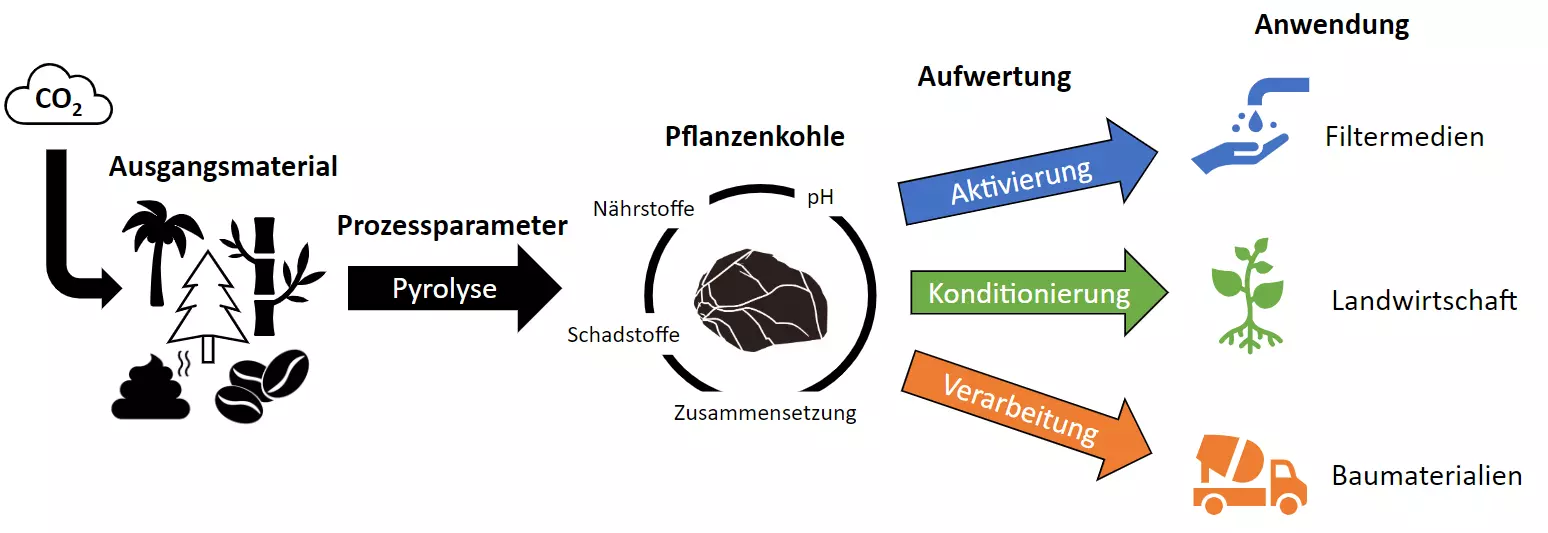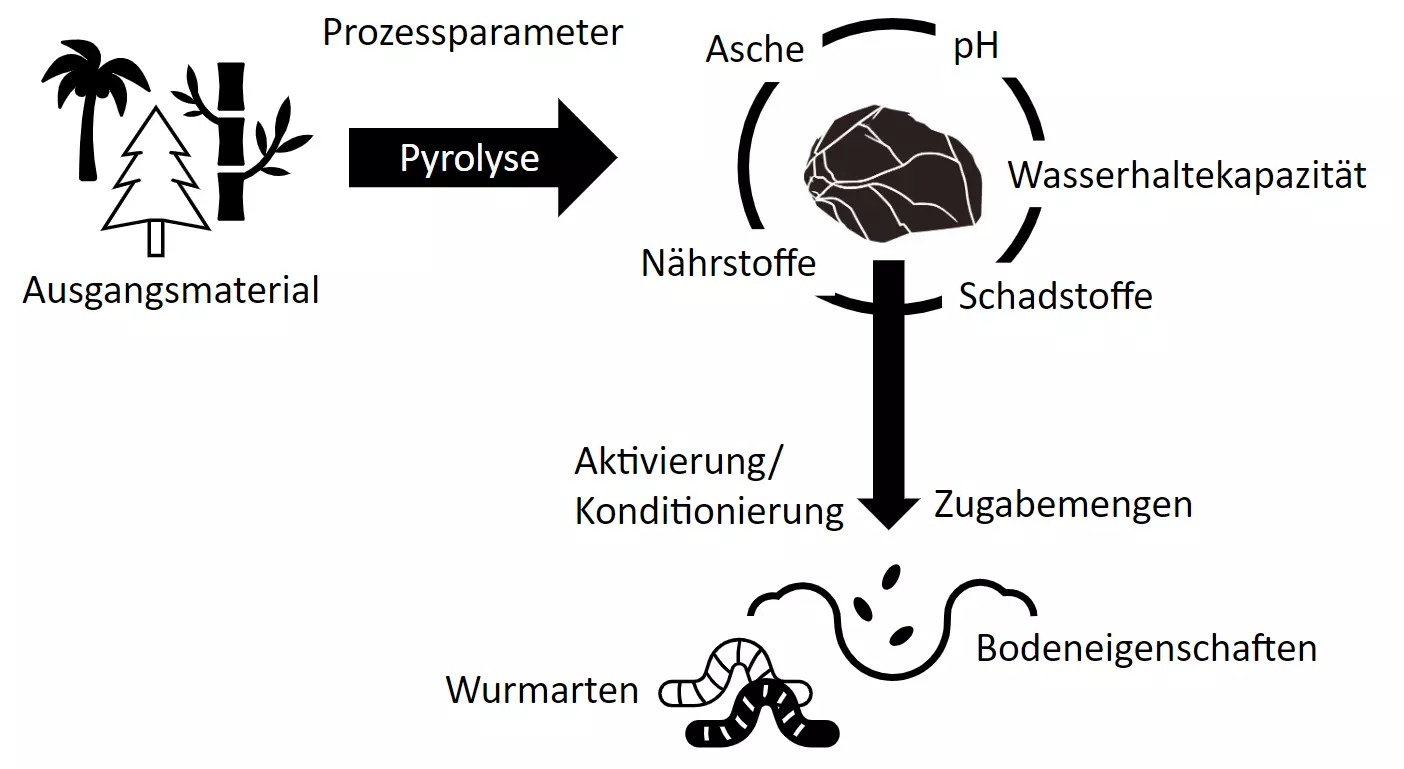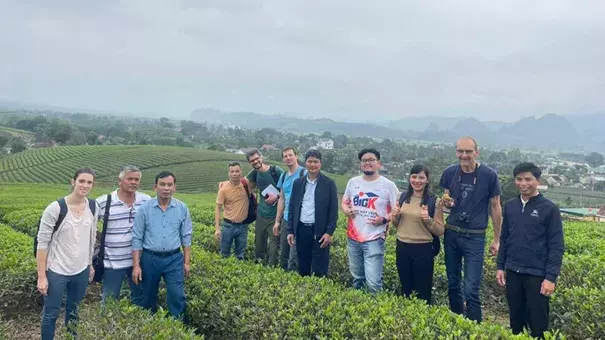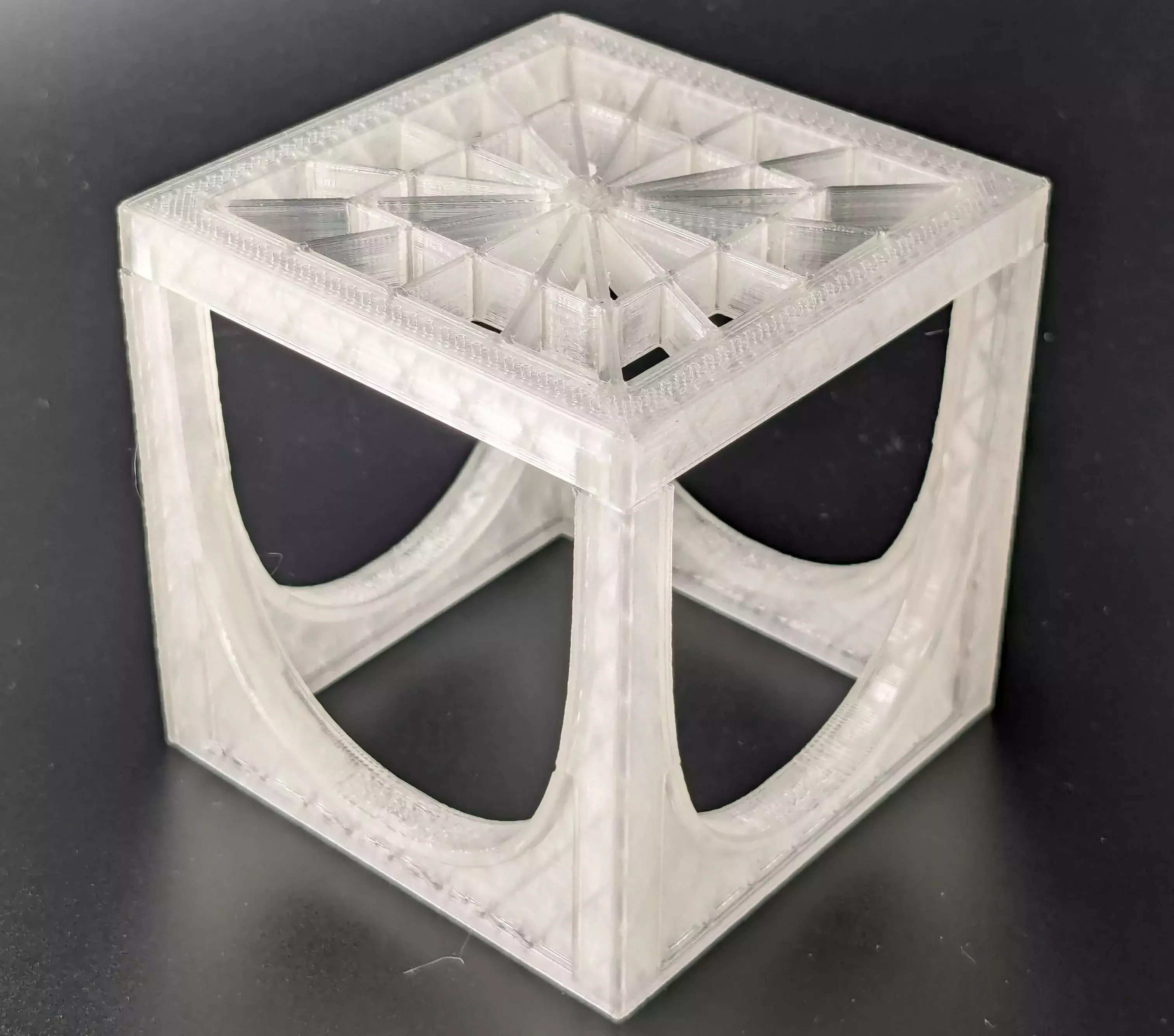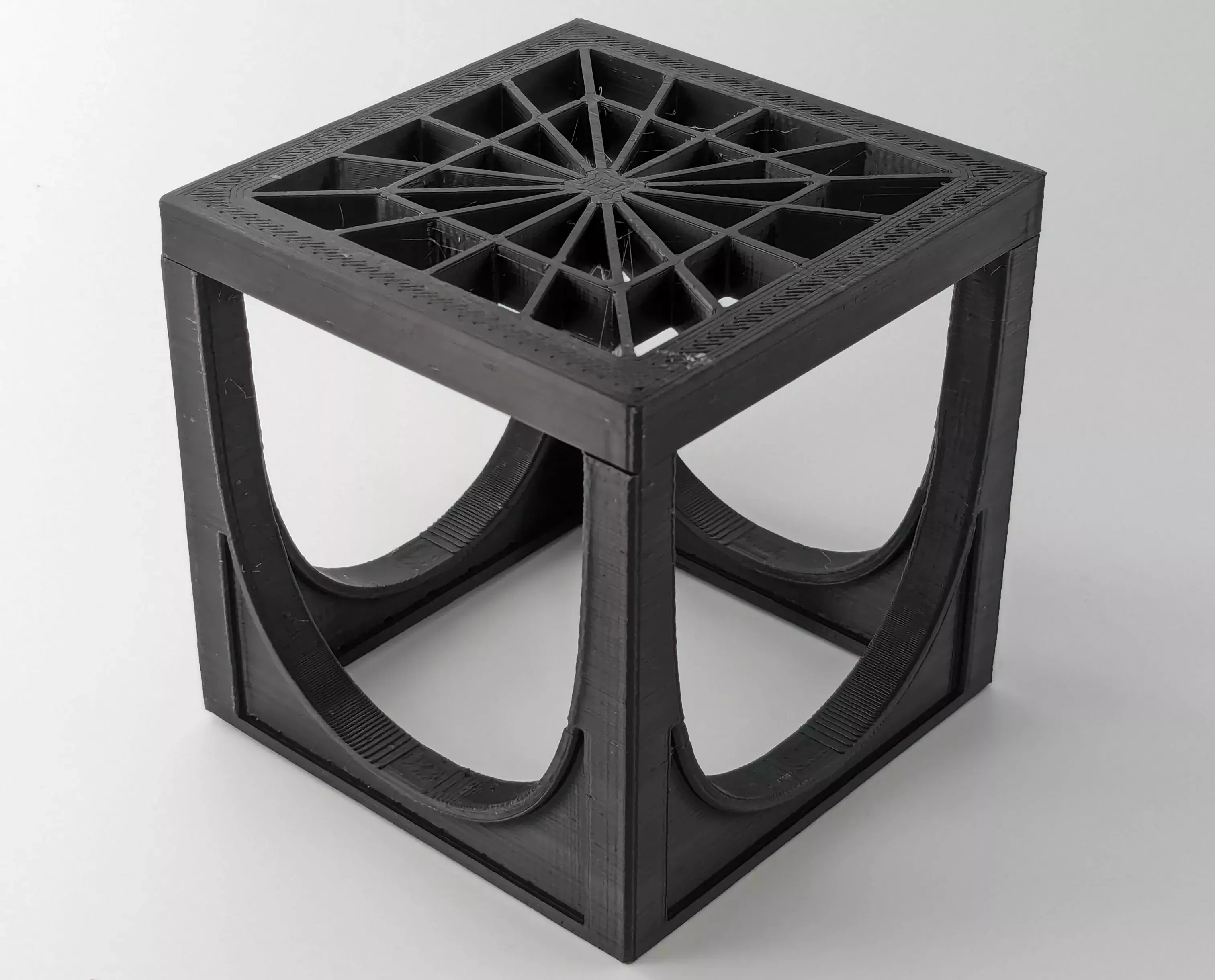Biochar
Interest in plants has increased significantly in Switzerland because biochar is one of the few natural 'net zero' strategies. It is an effective solution for the climate because it binds CO2 in the long term by absorbing it through photosynthesis and then storing it permanently in the biochar through pyrolysis. This technology is increasingly being used as a fertiliser, in building materials or as a filtration system. Our research is also investigating new types of waste biomass, different pyrolysis processes and biochar conditioning. Our pyrolysis plant allows us to optimise the use of biochar for different applications using innovative processes.
Effect of biochar on earthworms in Swiss soils
- Commissioned by: BAFU Abteilung Boden und Biotechnologie
- Duration: 01.11.2023 - 30.04.2024 (preliminary study)
The fertility of Swiss soils depends to a large extent on the activity of soil organisms, in particular earthworms. We are investigating how biochar affects the living conditions of the important earthworms in our soils to ensure that they are not harmed.
Green!Tea
- Funding: REPIC
- Duration: 01.11.2023 - 31.12.2025
- Project partner: Song Lam JSC / Soil and Fertiliser Research Institute in Hanoi
- Other actors involved: International Fund for Agricultural Development (IFAD), International Finance Corporation (IFC), Swiss Economic Cooperation, UN International Development Organisation (UNIDO), Swiss Ambassador to Vietnam, REMTEC
- Scope: 17,000 tea and sugar farmers
The project integrates agrophotovoltaics and pyrolysis technology to provide sustainable energy and fertiliser for tea cultivation. The biochar used reduces waste and improves water and nutrient retention in the soil, thereby improving the resilience of the plants. This aims to improve the living conditions of local farmers.
Biochar Beyond Soil
- Commissioned by: BAFU Climate Division
- Duration: 01.01.2023 - 31.08.2023
Biochar is increasingly being used industrially as an additive in concrete, asphalt and plastics, allowing the use of previously unused waste biomass. A preliminary study by our group shows a significant demand for biochar, even in small quantities, and highlights the need for further research into its influence on material properties and CO2 storage capacity. In particular, plastics, which degrade rapidly, need to be optimised to ensure long-term carbon storage. Another preliminary study investigated the compatibility of biochar made from coffee bean hulls, wheat bran and wood residues with biodegradable plastic (PLA) and found that the addition of biochar accelerated the degradation of PLA. 3D printing processes were used to produce modules that can withstand a load of up to 25 tonnes/m², making their use for structural applications in urban ecology, such as root support structures for urban trees, very promising.
Pyrolysis of wood contaminated with plastic from green waste collection
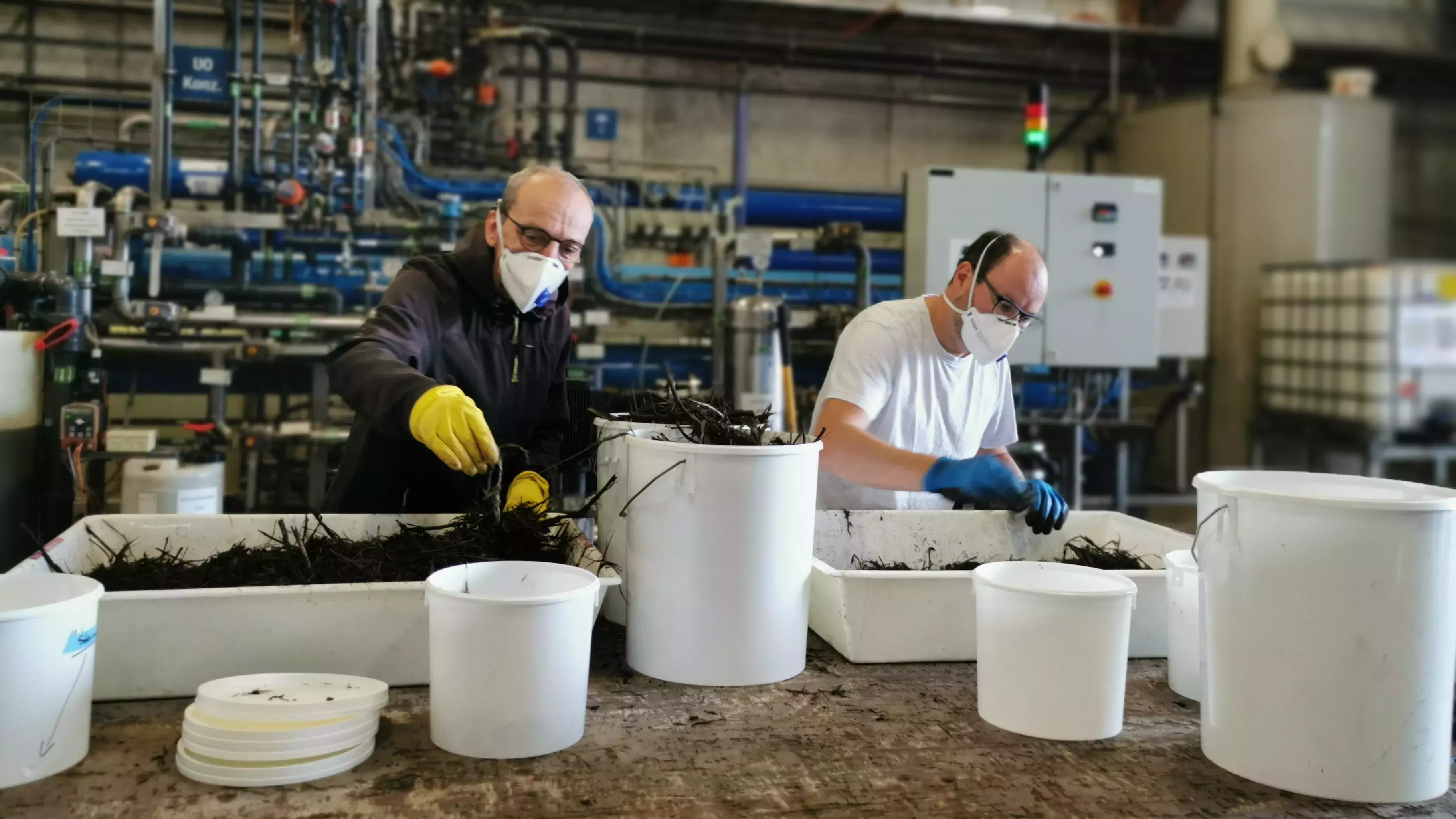
- Commissioned by: Swiss Farmer Power Inwil AG
- Duratuib: 01.05.2022 - 02.02.2023
For the first time, the project idea combines the aspects of heat utilisation from wood residues contaminated with plastics from green waste collection and the production of biochar with a pyrolysis process and includes the following aspects:
- Pyrolysis of the contaminated wood residues and subsequent complete combustion of the pyrolysis gases to provide heat as well as the production of biochar
- Generation of high-temperature heat from pyrolysis for amine scrubbing
- Production of coal as a starting point for other utilisations (e.g. activated carbon, soil conditioner and negative emission technologies (NET materials as a C sink))
- Reduction of disposal costs
